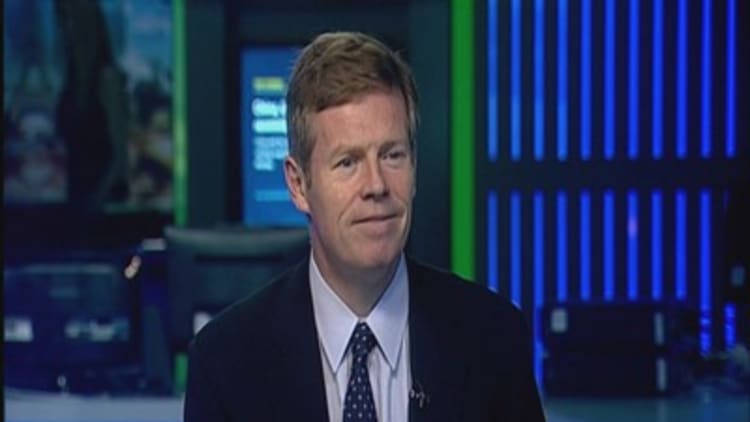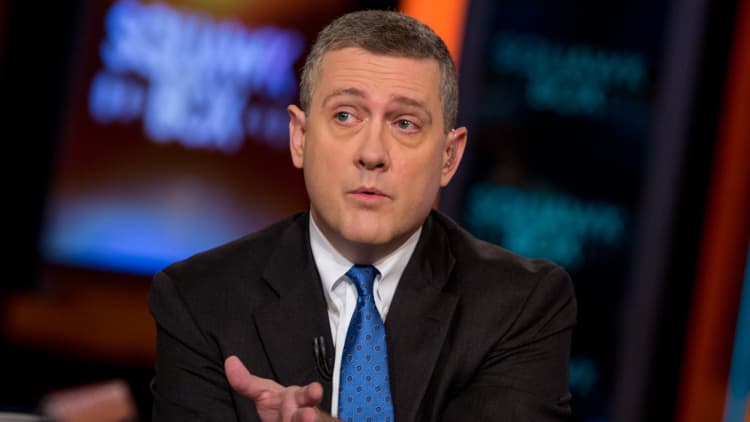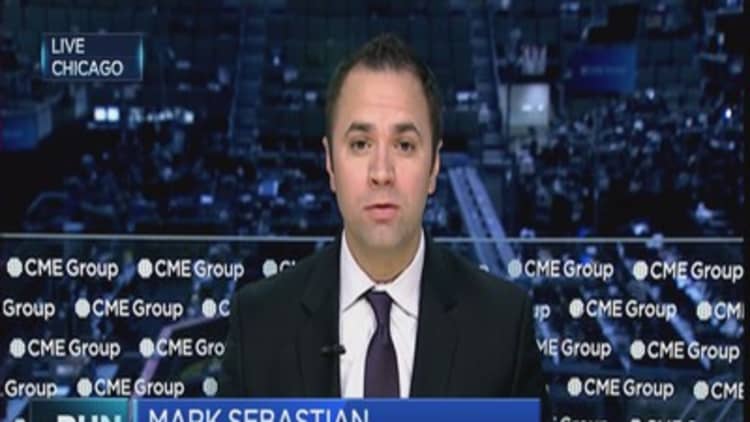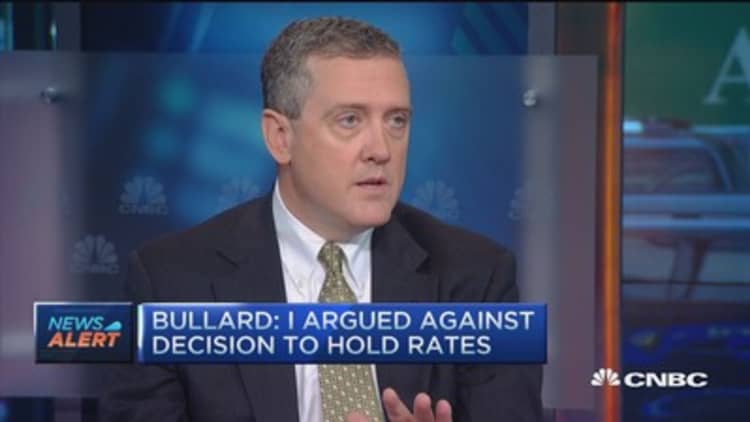



When the U.S. Federal Reserve kept rates on hold on Thursday, the central bank explained it made the decision because of the unstable global outlook. However, some investors have criticized the move, warning that the world could soon lose faith in the Fed.
"They (Fed) should not base a rate decision on market volatility, because if you do that, then nobody is going to predict what you're going to do," David Kelly, chief global strategist at JPMorgan Funds, told CNBC Monday.
"Not only does this now put into doubt when the first rate hike will be, but it means when they begin to raise rates, we don't know if something could happen in overseas markets and suddenly they stop raising rates."
In last Thursday's statement, the central bank pointed to concerns over "global economic and financial developments" as reasons to delay a rate hike, but now investors worry whether this is the right decision and whether this would greatly influence the U.S. economy.
St. Louis Fed president, James Bullard, echoed this Monday, telling CNBC it is "inappropriate" for the U.S. central bank to react to financial market turmoil, and focus more on growth and labor markets.
Bullard added that to avoid a "1994 scenario", the Fed should "go early, go gradually", giving them flexibility to react to future problems that occur.
If the U.S. central bank publicizes its concerns over financial markets, markets will in turn become more uncertain over when the Fed will hike, Kelly added.
"Markets hate uncertainty and what the Federal Reserve managed to do is add a huge serving of uncertainty to markets," Kelly argues, adding that before the Fed had a clear criteria as to what should trigger a first hike and how to maintain, but now talk about China, volatility and commodities adds a whole host of uncertainty for markets.
By keeping rates so low, the Federal Reserve is actually helping subdue the U.S. economy, Kelly adds, saying that instead of speeding up economic growth, the central bank is afraid over fears that the economy could be too weak.
"If they are going to get derailed by any move in market volatility, then it just makes it more and more cloudy. That is not good for financial markets."
A confidence issue?
On Friday, both European and U.S. markets reacted negatively to the Fed's decision, closing sharply in the red, with some analysts suggesting the Fed has a "confidence issue."
"I think there's a confidence issue in the Federal Reserve and a confidence issue in global growth," Mark Sebastian, founder of OptionPit.Com, told CNBC Monday.
Briefly, investors saw Thursday's decision as an opportunity to break the market out of its "malaise", Sebastian said. The founder now predicts there could be another four to six weeks of volatility, with "multiple one and two percent moves a day now" as the market is still trying to decipher the Fed. He brings up another concern, is the Federal Reserve losing control and does society still trust them?
"We've got all these governors saying 'Hey, we might raise rates; we're going to raise rates' and then they come out of this meeting and say 'Oh wait, We're not'. I think financial markets have lost confidence in the Fed to really understand what's going on in world markets."
—By CNBC's Alexandra Gibbs, follow her on Twitter @AlexGibbsy.



